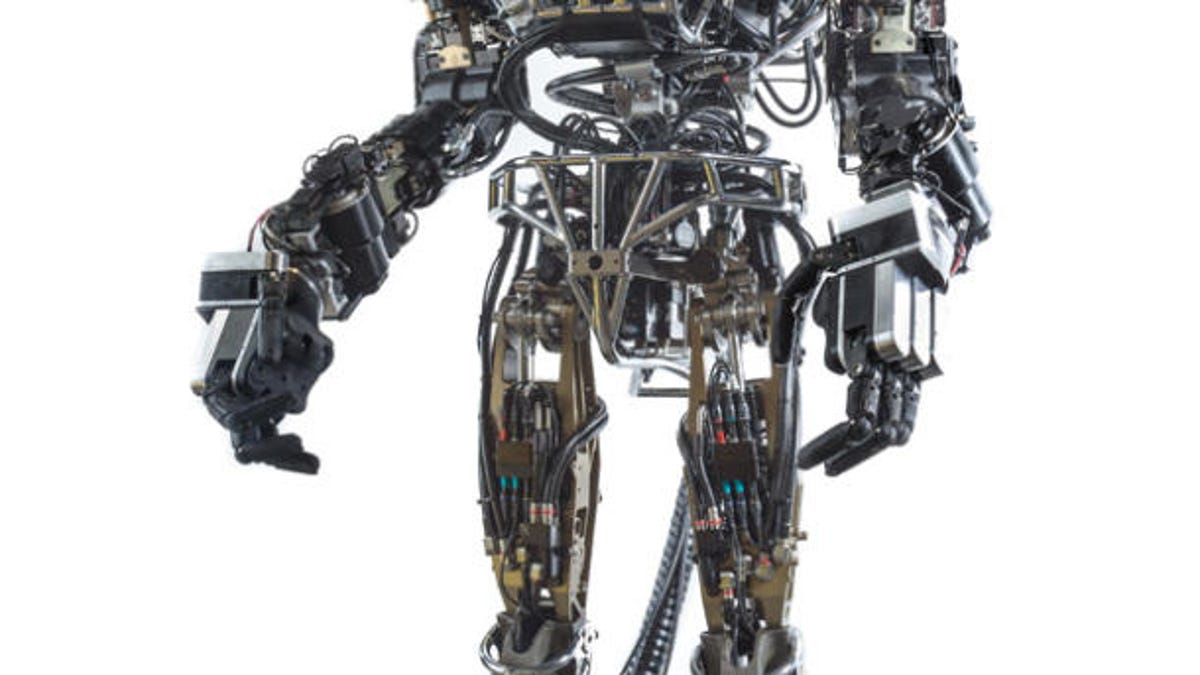Five ways Google could help start an apocalypse
Humanoid (and cheetahoid) robots with access to your calendar and home automation systems gone bad are examples of how the "don't be evil" company could morph into a sci-fi franchise.

A decade ago, we used to hear a lot more about Google's informal motto: "Don't be evil." It doesn't come up as much anymore, but those three words still lead off Google's corporate code of conduct. And given some of the company's recent acquisitions that are heavy on robotics and artificial intelligence companies, that's probably a good thing.
But still, with an Internet giant also buying up the know-how to make killer robots, it's not too hard to imagine something like the classic science-fiction conceits of SkyNet turning on its creators taking root at the Googleplex in Mountain View, Calif. "Don't be evil" is a great startup motto, but what's the old truism about power corrupting? Sometimes, it seems like Google is heading toward absolute power in some areas.
To be fair, my whole premise here is about 99 percent tongue-in-cheek. I don't actually go to bed at night worrying that the touchless control on my Moto X is going to take touchless control of my life by the time I wake up. But there is that paranoid 1 percent or so of my brain that sees how the End Times could come from the seemingly innocent things Google is doing today. Let's look at just a handful of these far-fetched scenarios:
1. Killer robots that know everything about us. In just the past 60 days, Google has bought a half dozen robotics companies and one that works in artificial intelligence. Among those companies is Boston Dynamics, which has designed robots for the military that can run like a cheetah and climb vertical walls. Did I mention they also have a humanoid "Atlas" robot that, although not specifically designed for any offensive military use, can withstand being hit by projectiles and looks an awful lot like a predecessor to what we've seen in the "Terminator" series? Connect Atlas up to Google Now and you've got a bulletproof robot with a pet robotic cheetah that knows where you live and travel and what your interests, plans, and even musical tastes are. Sleep tight, Android fans.
2. Self-driving cars pave the highway to hell. Google's autonomous cars still seem pretty far from mainstream implementation, but if the technology ever were to become a primary means of transportation, it would need to be operated through a shared network. If that network were ever compromised, or -- just for dramatic purposes -- became sentient, let's say -- then we have another possible SkyNet scenario on our hands. After all, this is a world where hackers were able to remotely mess with Iran's uranium-enriching centrifuges until they broke. The notion that robot cars could be hijacked remotely and driven into the tiger habitat at the local zoo isn't as science fiction as it once seemed. There's also the worst-case scenario: that all those Scions become self-aware of just how strangely boxy and ugly they are and seek revenge on their creators.
3. Real-world Androids to fall in love with -- until they destroy us. Spike Jonze's Oscar-nominated flick "Her" imagines a world in which we can fall in love with an operating system with artificial intelligence baked in. Well, last year, Google bought a little company called DNNResearch and brought its founder Geoffrey Hinton on board. Both specialize in artificial neural networks and aim to help systems recognize things like speech and objects. Add to this Google's more recently reported acquisition of artificial intelligence firm DeepMind, and suddenly it seems that Jonze's vision of an intangible girlfriend seems within reach. Don't forget that Google is also now the humanoid robot company, meaning we may not have to wait centuries for Cylons -- and we all know how trustworthy they are.
4. Nest turns our castles into prisons. For years now, Google has been making noise about home automation and the Internet of Things with initiatives like Android @home, which still hasn't made it to market. But then it went and bought an established innovator that people have actually heard of in Nest. So now we've got a leader in home automation under the umbrella of the leading search company pursuing the dream of the "conscious home." We're on our way to the world of the Jetsons with a life of leisure! Unless, well, you should probably just go read some Arthur C. Clarke and watch out for the character named HAL.
5. Gmail slips into a coma. We recently experienced a taste of a truly traumatic Googpocalypse when Gmail went down worldwide for a short period of time. Imagine the chaos that would ensue if the service vanished from our lives for an entire day, or week, or perhaps even permanently. Don't laugh. It happened to Google Reader; it could happen to that Gmail account where you store all your photos, sensitive correspondence, passwords, manuscripts, love letters, financial records, and drafts of Justin Bieber fan letters you never had the guts to send on an account you share with your wife.
What other ways could the "Don't be evil" company be hijacked for less-than-not-evil ends? Let us know in the comments and on Twitter @EricCMack and @Crave. Or just share your data-driven nightmares and we'll work through them together.

